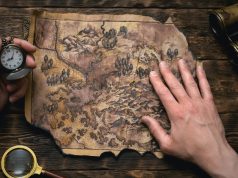General knowledge is more than a collection of trivia—it’s the foundation for critical thinking, informed decision-making, and engaging conversations. By exploring diverse subjects such as history, science, culture, and art, we develop a well-rounded perspective that enhances both personal growth and professional success. Whether you’re a lifelong learner, a student, or a professional seeking to stay current, investing time in expanding your general knowledge can yield significant benefits.
In this comprehensive guide, we’ll dive into the fundamentals of general knowledge, explore its advantages, and offer practical strategies and resources to help you build and sustain a rich repository of information. Prepare to ignite your curiosity and transform the way you see the world.
Understanding the Foundation of General Knowledge
At its core, general knowledge refers to a broad understanding of various subjects without requiring deep expertise in any single area. This breadth of knowledge is what differentiates specialized experts from well-rounded thinkers. The foundation of general knowledge is built upon three pillars: breadth, context, and connection. Breadth involves covering a wide range of topics, from world history and geography to current events and scientific principles. Context gives meaning to facts by placing them within larger narratives—understanding how the Renaissance influenced modern art, for example, or how the laws of thermodynamics underpin everyday technologies. Connection refers to linking disparate ideas, which can lead to creative insights and innovative solutions. By appreciating the interplay between different fields, you develop a dynamic framework for understanding the world.
The Benefits of Cultivating a Diverse Mind
Enhanced Critical Thinking
General knowledge equips you with multiple lenses through which to evaluate information. When you have background knowledge on a subject, you can critically analyze new data, question assumptions, and recognize biases. This ability to think critically not only improves problem-solving but also helps in navigating complex, real-world situations. Whether you’re interpreting a political debate or assessing scientific claims, a strong general knowledge base fosters clarity and discernment.
Improved Communication
Engaging in meaningful conversations often requires a shared vocabulary and familiarity with a range of topics. General knowledge allows you to connect with diverse audiences, from discussing the latest technological advances to reflecting on historical milestones. By referencing a variety of subjects, you can spark interest, build rapport, and communicate ideas more effectively.
Creative Problem-Solving
Exposure to different disciplines encourages out-of-the-box thinking. When you draw parallels between unrelated fields—like applying principles of biology to business models—you unlock innovative approaches to challenges. This cross-pollination of ideas is a hallmark of creative problem-solving, which is highly valued in both academic and professional settings.
Effective Strategies to Acquire and Retain Knowledge
Active Reading and Note-Taking
Rather than passively reading, engage with the material by asking questions, summarizing key points, and highlighting important passages. Use structured note-taking methods such as the Cornell system or mind mapping to organize information visually. Regularly reviewing and refining your notes can reinforce memory retention and deepen comprehension.
Mnemonics and Memory Techniques

Mnemonics, acronyms, and visualization strategies can make complex information more memorable. For instance, using the acronym “HOMES” to recall the Great Lakes (Huron, Ontario, Michigan, Erie, Superior) is a classic example. Creating vivid mental images or memorable stories around data can also improve recall when you need to retrieve facts quickly.
Engaging with Diverse Media
Don’t restrict yourself to books alone. Podcasts, documentaries, online lectures, and interactive workshops can offer fresh perspectives and cater to different learning styles. Audiobooks and educational videos allow you to absorb information during commutes or workouts, making efficient use of your time.
Applying General Knowledge in Daily Life

General knowledge isn’t just for academic exercises—it has practical applications in everyday life. In professional settings, well-informed individuals tend to excel in networking, negotiations, and leadership roles. During social interactions, sharing interesting facts or historical anecdotes can break the ice and foster deeper connections. Even mundane tasks benefit from general knowledge: understanding basic weather patterns can inform travel plans, while knowing nutritional guidelines can lead to healthier eating habits. By integrating your knowledge into daily decision-making, you gain confidence and adaptability.
Resources to Broaden Your Horizons
- Books and Encyclopedias: Explore both classic works and contemporary publications covering a wide array of subjects. Encyclopedias and reference books provide concise overviews to jumpstart your learning.
- Podcasts and Documentaries: High-quality podcasts and documentaries provide in-depth explorations of history, science, culture, and more. Platforms like YouTube, Netflix, and dedicated podcast apps host thousands of episodes and films.
- Online Learning Platforms: Websites like Coursera, edX, and Khan Academy feature courses from leading universities and industry experts. Many are free or available at low cost, allowing you to learn at your own pace.
- Interactive Workshops and Networking: Local workshops, seminars, and meetups encourage hands-on learning and foster community. Engaging with peers and mentors can spark discussions and provide fresh insights.
To make the most of these resources, create a balanced learning schedule that includes daily reading, weekly multimedia sessions, and periodic workshops or events. Tracking your progress with a journal or digital tool can help you stay motivated and celebrate milestones.
Cultivating Curiosity: The Driving Force
Curiosity is the natural impetus behind all learning. By asking open-ended questions and embracing uncertainty, you fuel a continuous quest for knowledge. Keep a journal of questions that arise during your day—whether about a news headline, a scientific concept, or a cultural practice—and dedicate time to researching the answers. Embrace mistakes and gaps in understanding as opportunities rather than setbacks. Over time, this mindset transforms learning from a chore into an exciting voyage of discovery.
Conclusion
General knowledge is a transformative asset that empowers you to think critically, communicate effectively, and solve problems creatively. By exploring valuable General Knowledge Treasures, understanding its foundations, recognizing its benefits, and employing proven strategies and resources, you can continually expand your intellectual horizons. Above all, cultivating curiosity will sustain your motivation and turn every experience into a learning opportunity. Start your journey today—immerse yourself in new subjects, engage with diverse media, and share what you learn with others. The world is waiting for your insights and questions.







